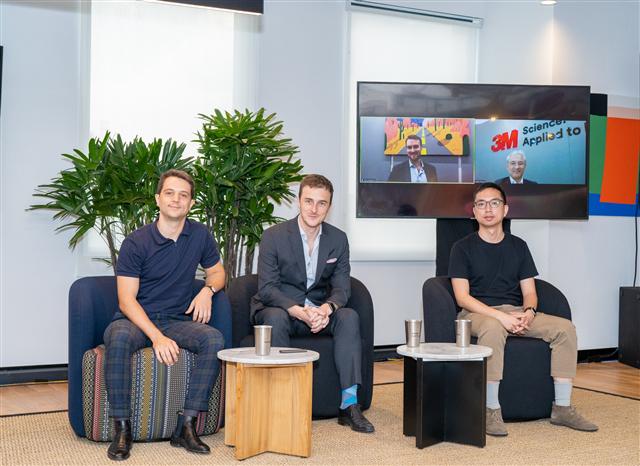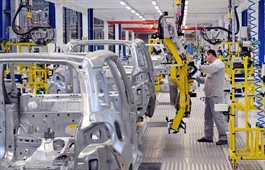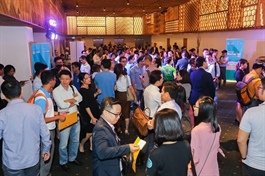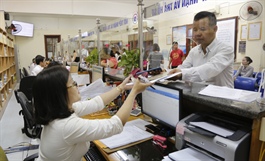Foreign investment buttresses Vietnam's transformation to high performing economy
Foreign investment buttresses Vietnam's transformation to high performing economy
Vietnam’s transformation towards a high-performing economy is bolstered by continued foreign investment post-COVID-19 pandemic.

Experts shared key insights with foreign enterprises to future-proof their strategy
|
This was stressed at the “Catching Up With Vietnam” virtual panel discussion by WeWork. The event highlighted key insights of the country’s evolving business landscape and strategic counsel for foreign enterprises to capture growth opportunities ahead.
With Vietnam traditionally regarded for attracting foreign investment in manufacturing, the nation is increasingly facing multiple acceleration opportunities with key technology growth sectors such as fintech and e-commerce.
In order to elevate its regional position, Vietnam first needs to increase national resilience and competitiveness by accelerating private entrepreneurship to grow the startup ecosystem and invest in critical enablers to boost productivity through reskilling towards the nation’s Industry 4.0 goals.
"Vietnam remains a prominent destination for international business, and we can see the country transforming into an ecosystem economy, with a concerted push towards Industry 4.0 and companies here are making major efforts to reimagine the consumer experience," said Matthieu Francois, associate partner at McKinsey and Company Vietnam.
With Vietnam seeing a rise of 14.9 per cent in foreign investments and capital contributions in June 2020 as compared to June 2019, it is evident that the international community still sees great growth opportunities. However, navigating the pandemic’s impact also means that there is a great need to expedite industry transformation to be ahead of challenges.
3M is one of the very first US-based companies to enter Vietnam in 1994. Its three key strategic drivers in science, technology, and innovation have been enhancing its competitive capacity and company culture.
Collaborating with the government and local experts has been able to help them anchor their company’s development, together with a sustainable approach to its local investment. By creating new innovations addressing market trends, adopting a forward-thinking outlook enables 3M to establish Vietnam as an emerging research and development hub in the region.
“As part of our business model now focusing on sustainability efforts, our innovation strategies are essential to our future success. Alongside strengthening local communities, we are very much focused on driving further opportunities in delivering greater value for our customers and stakeholders in Vietnam's current landscape,” said Jacky Kang, country leader of 3M Vietnam.
Similarly, Paul Ahlgrim, director of Broker Partnerships, WeWork Southeast Asia said that, “We have seen a marked shift in companies’ perspective towards their workplace strategy from one that was more focused on business continuity to now future-proofing against the pandemic’s realities. What we are seeing is that flexibility is fast becoming the most important and relevant asset for any company, and WeWork is well-positioned to help companies navigate their recovery strategy in alignment with evolving workforce expectations.”
In Vietnam, the workplace is fast becoming one that shapes corporate culture and innovation and WeWork’s flexibility proposition is helping companies navigate solutions to fit their workplace strategy. Together with the region’s pursuit of innovation, WeWork is taking a more digitised approach to its portfolio, with the roll-out of All Access and On Demand to cater to greater demand for optionality.


























